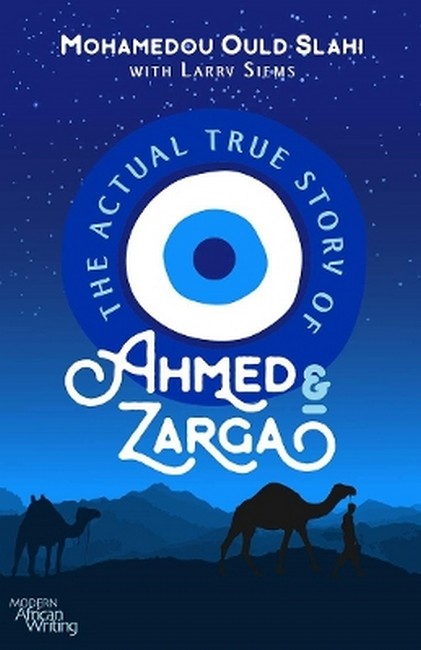Mohamedou Ould Slahi is the son of a Mauritanian camel herder. Known internationally for his bestselling Guanta?namo Diary, a searing memoir of the neocolonial hell of the United States's War on Terror, he returns to the world of his childhood in this poetic, intimate tale woven from the life and the stories of a culture on the brink of disappearing. Photo with Larry Siems courtesy the author. Larry Siems is the chief of staff for the Knight First Amendment Institute at Columbia University and a previous director of Freedom to Write and International Programs at PEN. His articles and books address immigration, human rights, and free expression. He edited, annotated, and introduced Mohamedou Ould Slahi's memoir, Guantanamo Diary. Author photo by Donna F. Aceto.
Request Academic Copy
Please copy the ISBN for submitting review copy form
Description
"Wise, loyal Ahmed goes to search for his missing camel, Zarga. It is a journey that begins innocently enough, but Slahi's expansive imagination transforms it into an epic voyage across terrain both geographical and spiritual. At once compassionate and full of wisdom, this unforgettable novel also showcases Slahi's sharp-eyed, irreverent wit. Ahmed's story held me rapt. It is a generous reminder of the goodness and love that still exist in the world, no matter the darker forces at the edges." "A Bedouin nomad grapples with visions of the dead and the advent of French colonialism after WWI in Slahi's vivid and fablelike debut novel (following the memoir Guantanamo Diary). The present-day narrator recounts a story that allegedly came from a descendant of the legendary storyteller Sheherazade, about Mauritanian camel herder Ahmed Ould Abdallahi, who sets out in the Sahara to find his prized camel, Zarga. Along the way, Ahmed encounters many dangers, including desert vipers and cannibals, along with instances of Bedouin hospitality, contextualized by the narrator's explanations of tribal relationships with the new French authorities.... Flashes of wry humor ... offer a welcome counterbalance to Ahmed's daily prayers and religious songs. This modern-day folktale of human endurance is worth a look." (Publishers Weekly) "Ould Slahi's second book and first novel, takes this loose thread (a desert vision) and weaves it into scraps of Mauritanian lore, poetry, and imagery until an epic adventure emerges. Although Ahmed's story takes place during French colonization and before the Great Sahelian Droughts of the 1960s-80s, he feels with great certainty that his way of life is vanishing. This knowledge always lingers in the background of Ahmed and Zarga, giving urgency to the story's role in recording what is fading away." (ArabLit)

